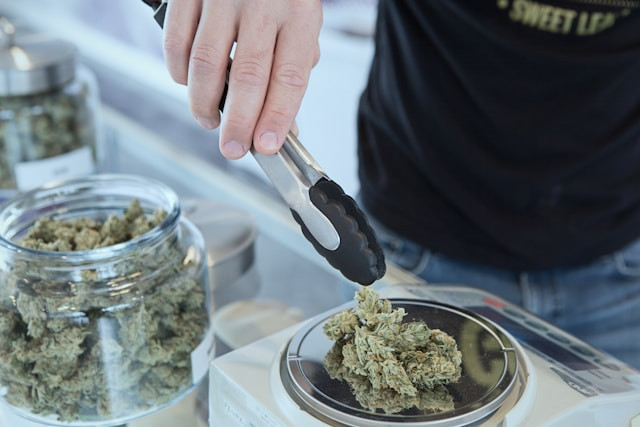Scientists at Macquarie University and The University of Sydney, Australia, have discovered that CBD and especially CBDV exhibit significant antifungal activity against Cryptococcus neoformans, a dangerous fungus that can cause life-threatening meningitis, particularly in individuals with weakened immune systems. The World Health Organization (WHO) lists it as a critical priority!
What's really exciting is that these cannabis compounds aren't just fighting Cryptococcus. The study, published in PLOS Neglected Tropical Diseases, found that CBD and CBDV also effectively targeted:
Dermatophytes: The culprits behind common skin infections like athlete's foot and ringworm.
Other Fungal Pathogens: Including molds that can cause severe infections, especially in vulnerable patients.
The researchers found that CBD and CBDV don't just slow fungal growth, they actually kill the fungal cells. They also prevent the formation of biofilms, slimy layers of fungal cells that are notoriously resistant to treatment.
How Does It Work?
The team's analysis suggests that CBD and CBDV disrupt fungal cell membranes, interfere with essential metabolic processes, and target mitochondria.
To see if the CBD could actually work, the researchers tested it on moth larvae infected with Cryptococcus. The results were impressive: CBD treatment significantly boosted survival rates.
"Fungal infections are a major public health concern, and resistance to existing drugs is on the rise," says Amy Cain, lead author, and scientist at Macquarie University "These findings open up exciting possibilities for developing new antifungal treatments based on phytocannabinoids."
Important Note: While these findings are promising, more research is needed. It's too soon to self-treat fungal infections with cannabis products. However, the study offers a compelling case for further investigation into phytocannabinoids as a source of novel antifungal drugs.
Reference: Uncovering the antifungal potential of Cannabidiol and Cannabidivarin
Dinh H, Fernandes KE, Erpf PE, Clay EJM, Tay AP, et al. (2025) Uncovering the antifungal potential of Cannabidiol and Cannabidivarin. PLOS Neglected Tropical Diseases 19(6): e0013081. https://doi.org/10.1371/journal.pntd.0013081
